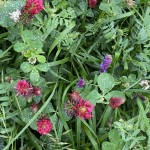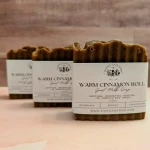Year-round strawberry production in Clive
Massive glasshouse production for export to Japan.
Added 2 years ago
By Brenda Newth

Full production is just months away at Tatsumi New Zealand’s strawberry farm in Clive. The Japanese owned company will produce strawberries year round, exporting mostly to Japan.
The facility replicates the company’s Japanese setup, where strawberries can only be grown a few months of the year because of very hot summers. Our temperate climate is much more suitable for 12 month production, and Tatsumi executives will be watching the performance of their new facility with interest.
The numbers are staggering:
- Around 19,000m2 of above-ground growing space
- 224 rows of plants
- Around 15,000 planters, each holding multiple plants
- 100,000 strawberry plants
- 150 tonne per annum output
- Multi-million dollar project
Both growing glasshouses are constructed, and phase one (6,000m2) is complete, says Tatsumi Project Manager, Mike Harper.
“We’re currently assembling the growing tables for phase two (around 12,500m2) and expect to be finished in the next couple of months.”
Harper is a seasoned property developer and no stranger to big projects, having been involved in the Whitianga Waterways Project for the Hopper family, and Matarangi Beach Estates. He admits to being a man that likes a project and loves to be busy.

Also working on the project alongside Harper is Japanese-Kiwi horticultural business consultant Yumeri Katsura, from YumeKon NZ Ltd. She has a long career in New Zealand horticulture having worked in the South Island wholesale tree nurseries, and more recently for a table grape grower in Hawke’s Bay, exporting them for the Japanese market.
The strawberries are planted on tables, above-ground planters, similar to hydroponics, but are planted in a special recipe growing mix, developed by the Japanese technical team. The growing house is fully automated with an environment control system, bumblebees pollinate the crop, and the plants’ fertigation (water/fertiliser) is controlled and measured. The growing trays will soon have “outriggers” extending the plant horizontally, enabling the fruit to hang, making picking easier.
At full production 15 full time roles will be created, and Harper says Tatsumi is keen to employ locals. “It’s a hot environment in the growing shed, so we want people who like to be warm, and have gentle hands,” he says.
As well as completing phase two of the glasshouse, a packing shed is next on the list so that the crop can be packed for shipping to Japan.
Full production in June coincides with the start of the peak seasonal demand in Japan, says Yumeri Katsura, whose role in the project spans business support, planting, and technical support.
Katsura says that a trial crop is underway in phase one.
“The trial crop is about getting our processes right, and so far we are very pleased.”
Tatsumi NZ project timeline:
- 2019 Tatsumi NZ purchases 3.8 hectare site in Richmond Rd Clive
- 2022 Glass house construction begins
- 2023 March set up complete
- 2023 June full production capacity reached, and export begins
Join the conversation
Selwyn Hawthorne - Jan 30, 2023, 11:13 AM
When I first started out in agricultural contracting in 1966 one of my first jobs was to mow and mulch the asparagus fern on this block of land for, from memory, the Holder family. Best wishes for a successful venture with your strawberries.
Leave a comment
All comments are reviewed before they are published on the website. Your email address will not be published.




Family-Owned Farm Embraces Regenerative Agriculture to Grow and Educate


